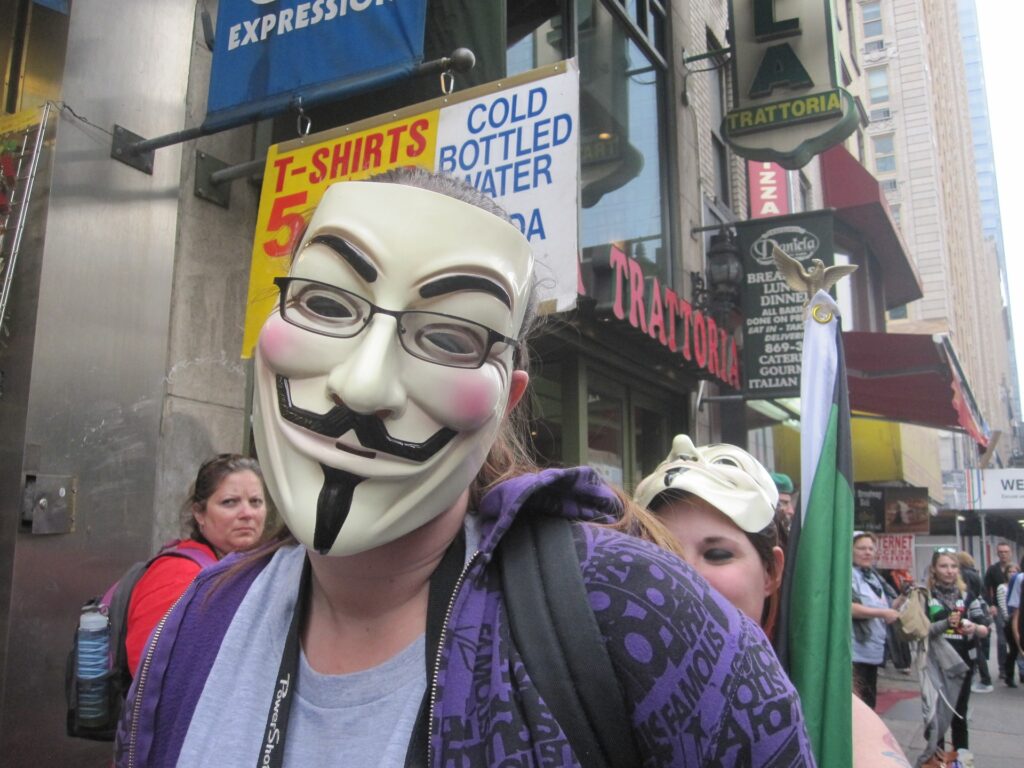In the ever-shifting landscape of digital activism and hacktivism, few narratives are as intriguing as the clash between the enigmatic collective known as Anonymous and the Russian government. This unfolding story reveals a complex interplay of power, ideology, and digital prowess.

As we delve into the depths of how Anonymous seemingly took on Russia, we uncover a tale of intrigue, resistance, and the blurred lines between activism and cyber warfare.
The Emergence of OpRussia
The stage was set when Anonymous announced “OpRussia,” a campaign aimed at targeting the Russian government’s alleged corruption, censorship, and human rights violations. This campaign marked a significant escalation in Anonymous’ activism, pitting them against a formidable opponent with considerable resources and cybersecurity capabilities.
Distributed Denial of Service (DDoS): Anonymous’ Arsenal
At the forefront of Anonymous’ arsenal lies the tactic of Distributed Denial of Service (DDoS) attacks. OpRussia saw Anonymous launching a series of DDoS attacks targeting Russian government websites, crippling their online presence temporarily. While these attacks can be disruptive, they also raise ethical questions about collateral damage, impacting users who may not be part of the targeted entities.
Digital Warfare vs. Cyber Espionage
The battle between Anonymous and Russia is characterized by a stark asymmetry of power. While Russia possesses state-sponsored cyber capabilities, Anonymous operates as a loosely-knit collective of volunteers with varying levels of technical expertise. This clash highlights the evolving dynamics of digital warfare, where non-state actors challenge governments on the virtual battlefield.
Freedom of Expression vs. State Control
At the heart of the conflict lies the clash between Anonymous’ commitment to freedom of expression and the Russian government’s tight grip on information dissemination. Anonymous accuses Russia of stifling dissent, censoring the internet, and curbing online privacy. OpRussia thus symbolizes a struggle for digital liberties in a country where the government exercises significant control over online discourse.
An Ideological Tug-of-War
Anonymous’ campaign against Russia is deeply rooted in ideological resistance. The collective’s actions echo its ethos of challenging oppressive regimes and advocating for transparency. By targeting Russia, Anonymous aims to expose alleged wrongdoings and inspire others to join their cause, transforming their digital actions into a form of online protest.
The Masked Persona and Symbolic Warfare
The iconic Guy Fawkes mask, synonymous with Anonymous, plays a symbolic role in the clash with Russia. The mask represents rebellion and defiance against authority. Its adoption underscores Anonymous’ intent to challenge powerful entities and resist efforts to stifle online activism.
Consequences and Complexity
The clash between Anonymous and Russia isn’t without repercussions. While Anonymous’ actions bring attention to alleged injustices, they also incur potential legal consequences. Governments may view the collective’s activities as cyberattacks and seek to apprehend those involved. The ambiguity of Anonymous’ structure complicates matters further, making attribution and legal action challenging.
Beyond Borders: A Global Phenomenon
The conflict with Russia is just one chapter in Anonymous’ global narrative. The collective has engaged in similar campaigns against various entities, ranging from corporations to governments. This dynamic highlights the collective’s ambition to challenge authority and promote change on a global scale.
The Legacy of Resistance
Regardless of the outcome, Anonymous’ campaign against Russia leaves an indelible mark on the digital landscape. It serves as a reminder of the power of digital activism to challenge established norms and expose alleged wrongdoing. The clash highlights the blurred lines between hacktivism, cyber warfare, and online protest, raising essential questions about the nature of digital engagement and the impact of state-sponsored control.
Conclusion: A Complex and Ongoing Tale
The story of how Anonymous seemingly hacked Russia is a multifaceted and ongoing tale of resistance, power, and digital activism. The clash symbolizes the intricate dance between state control and individual resistance in the digital age. As governments and non-state actors continue to navigate this complex landscape, the clash between Anonymous and Russia serves as a case study of the evolving dynamics of online activism and digital conflict.